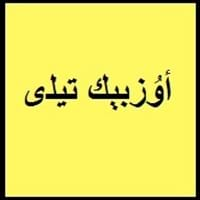Countries
Turkey, Uzbekistan
Barbados, Belize, Botswana, Cameroon, Canada, Dominica, Fiji, Ghana, India, Ireland, Jamaica, Kenya, Malta, Mauritius, Micronesia, Nigeria, Pakistan, Philippines, Rwanda, Saint Kitts and Nevis, Samoa, Sierra Leone, Singapore, Somaliland, South Africa, South Sudan, Sudan, Tanzania, Trinidad and Tobago, Uganda, United Kingdom, Zambia, Zimbabwe
National Language
Afganistan, China, Kazakhstan, Kyrgyzstan, Russia, Tajikistan, Turkmenistan, Uzbekistan
Anguilla, Antigua and Barbuda, Bahamas, Barbados, Belize, Bermuda, Cayman Islands, Gibraltar, Grenada, Guam, Guyana, Jersey, Montserrat, Nauru, Singapore, Trinidad and Tobago, United Kingdom, United States of America
Second Language
Not spoken in any of the countries
India, Nigeria, Pakistan, Singapore
Speaking Continents
Middle East
Africa, Asia, Australia, Europe, North America, Oceania, South America
Minority Language
Not spoken in any of the countries
South Africa
Regulated By
Not Available
Not Available
Interesting Facts
- Uzbek is officially written in the Latin script, but many people still use Cyrillic script.
- In Uzbek language, there are many loanwords from Russian, Arabic and Persian.
- Most of the English words begin with the letter S than any other letter.
- English is third most commonly spoken language in the world.
Similar To
Kazakh and Uyghur Languages
Not Available
Derived From
Not Available
Latin
Alphabets in
Uzbek-Alphabets.jpg#200
English-Alphabets.jpg#200
Scripts
Arabic, Cyrillic, Latin
Latin
Writing Direction
Not Available
Left-To-Right, Horizontal
Thank You
Rakhmat
Thank you
How Are You?
Qalay siz?
How are you?
Good Night
Hayirli tun
Good Night
Good Evening
Hayirli kech
Good Evening
Good Afternoon
Hayirli kun
Good Afternoon
Good Morning
Hayirli tong
Good Morning
I Love You
Sizni sevaman
I love you
Excuse Me
Iltimos! Menga qarang
Excuse Me
Dialect 1
Tashkent
American English
Where They Speak
Not Available
United States of America
How Many People Speak
Not Available
Dialect 2
Afghan
Hiberno-English
Where They Speak
Not Available
Republic of Ireland, United Kingdom
How Many People Speak
Not Available
Dialect 3
Ferghana
Welsh English
Where They Speak
Not Available
United Kingdom
How Many People Speak
Not Available
Second Language Speakers
Not Available
Native Name
أۇزبېك ﺗﻴﻠی o'zbek tili ўзбек тили (o‘zbek tili)
English
Alternative Names
Annamese, Ching, Gin, Jing, Kinh, Viet
Not Available
French Name
ouszbek
anglais
German Name
Usbekisch
Englisch
Pronunciation
Not Available
/ˈɪŋɡlɪʃ/
Ethnicity
Uzbek
Not Available
Origin
9th–12th centuries AD
5th Century AD
Language Family
Turkic Family
Indo-European Family
Subgroup
Turkic
Not Available
Branch
Southestern(Chagatai)
Not Available
Early Forms
Chagatay
Old English, Middle English, Early Modern English and English
Standard Forms
Uzbek
Standard English
Signed Forms
Not Available
Signed English
Scope
Macrolanguage
Individual
ISO 639 6
Not Available
engs
Glottocode
uzbe1247
stan1293
Linguasphere
No data available
52-ABA
Language Type
Living
Living
Language Linguistic Typology
Not Available
Subject-Verb-Object
Language Morphological Typology
Not Available
Analytic, Fusional, Isolating, Synthetic
Uzbek and English Speaking population
Uzbek and English speaking population is one of the factors based on which Uzbek and English languages can be compared. The total count of Uzbek and English Speaking population in percentage is also given. The percentage of people speaking Uzbek language is 0.39 % whereas the percentage of people speaking English language is 5.43 %. When we compare the speaking population of any two languages we get to know which of two languages is more popular. Find more details about how many people speak Uzbek and English on Uzbek vs English where you will get native speakers, speaking population in percentage and native names.
Uzbek and English Language Codes
Uzbek and English language codes are used in those applications where using language names are tedious. Uzbek and English Language Codes include all the international language codes, glottocodes and linguasphere.





